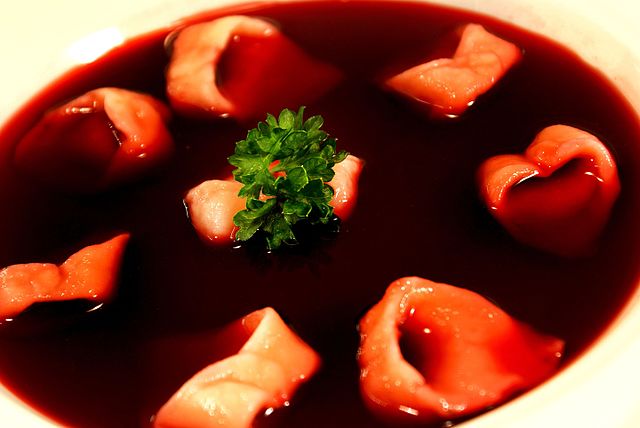Borscht (barszcz) is a sour soup common to various Eastern European cuisines. It derives from a soup originally made by the Slavs from common hogweed, a herbaceous plant growing in damp meadows, which lent the dish its Slavic name. Its stems, leaves and umbels were chopped, covered with water and left in a warm place to ferment. After a few days, lactic and alcoholic fermentation produced a mixture described as "something between beer and sauerkraut". It was then used for cooking a soup with a mouth-puckering sour taste and pungent smell. As the Polish ethnographer Łukasz Gołębiowski wrote in 1830, "Poles have been always partial to tart dishes, which are somewhat peculiar to their homeland and vital to their health." With time, other ingredients were added to the soup, eventually replacing hogweed altogether. In modern Polish cuisine, borscht usually comes in one of two varieties: clear beetroot-based red borscht, typically served with mushroom-filled uszka dumplings (pictured), or white borscht made from fermented rye flour and served over boiled sausage, potatoes and eggs. They are traditionally associated with Christmas and Easter, respectively. (Full article...)
Wikiwand in your browser!
Seamless Wikipedia browsing. On steroids.
Every time you click a link to Wikipedia, Wiktionary or Wikiquote in your browser's search results, it will show the modern Wikiwand interface.
Wikiwand extension is a five stars, simple, with minimum permission required to keep your browsing private, safe and transparent.
